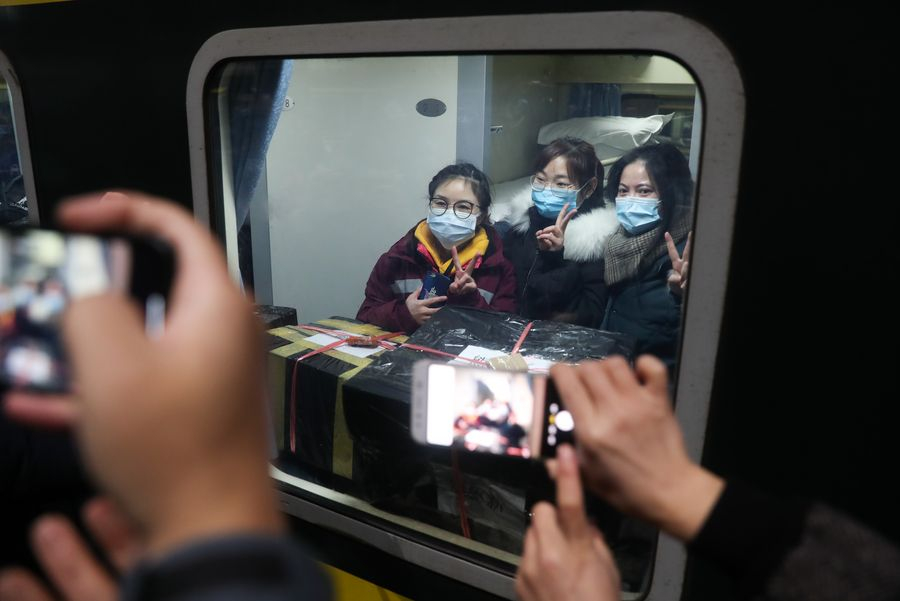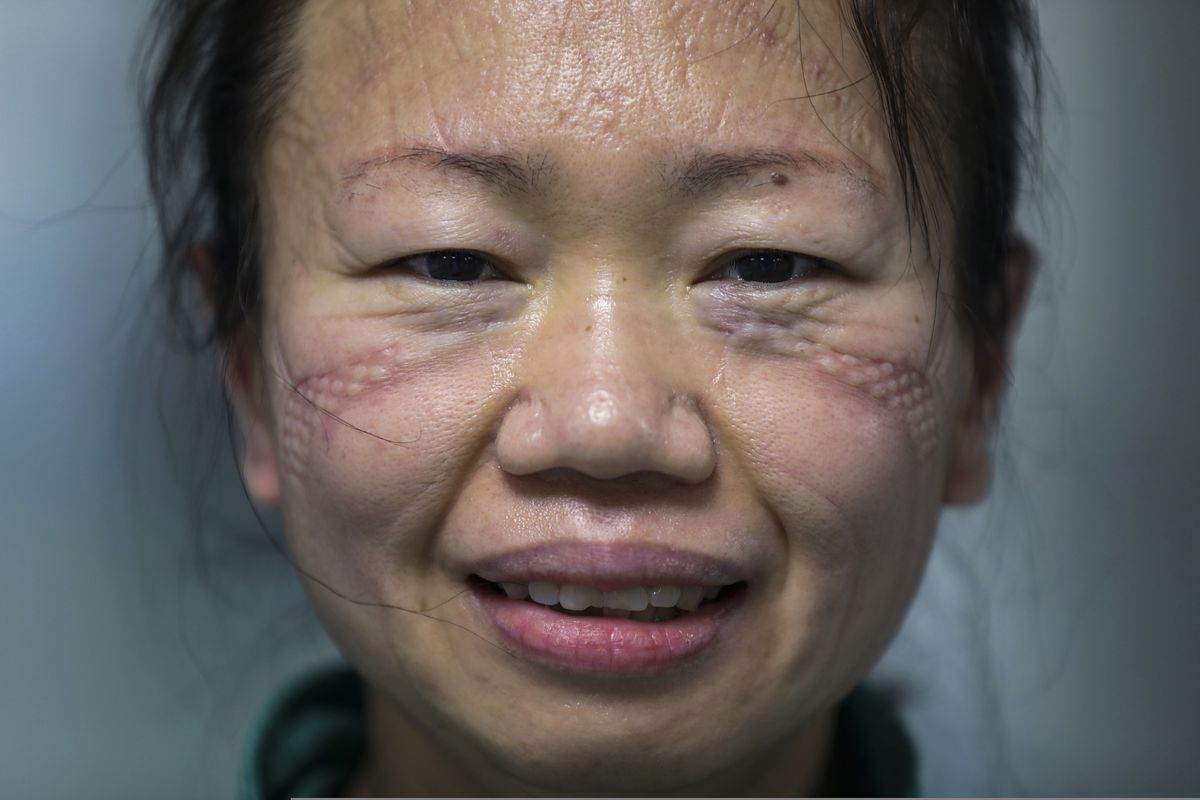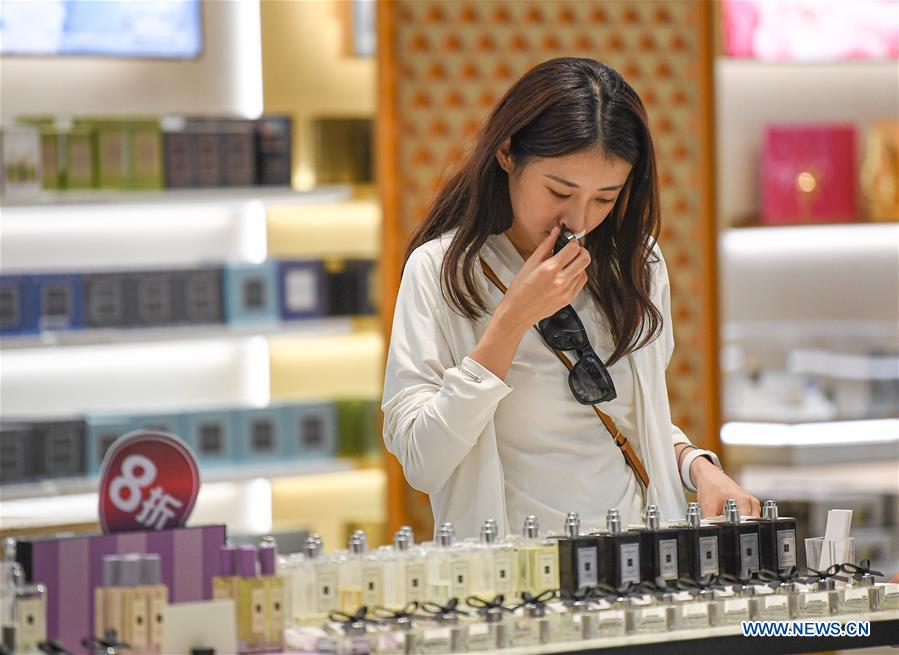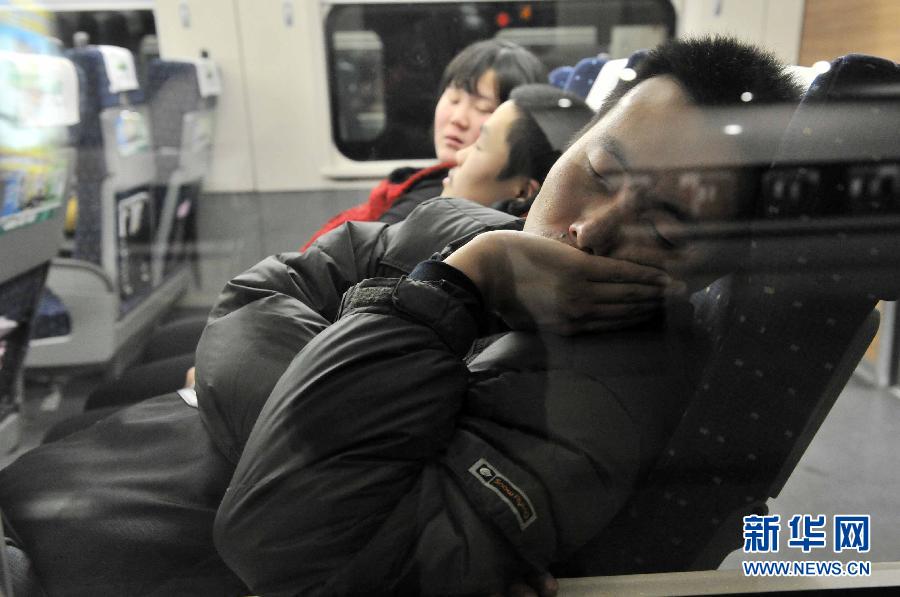Since 2009, the Shanghai-based literary periodical Yaowen-Jiaozi(《咬文嚼字》) has announced the top 10 buzzwords of the year in China.
The lists collect words and phrases that have gone viral and are frequently used with a humorous and ironic way by Internet users.
Here are the words of 2020:
1 People first, lives first (人民至上,生命至上)

Medical workers in protective suits help transfer the first group of patients into the newly-completed Huoshenshan temporary field hospital in Wuhan in central China's Hubei province. (File photo/ Xinhua)
The COVID-19 epidemic has posed a serious threat to Chinese people's lives and health, and the whole nation was closely united and actively engaged in the unprecedented fight against the pandemic. Chinese President Xi Jinping has particularly stressed adhering to the "people first" concept in coordinating epidemic control and economic and social development. The idea of "people first, lives first" is most fundamental reason for China's major strategic achievements in the war against the virus.
2 Heroes in harm's way (逆行者)

Female health workers on a 50-member medical team pose for photos before leaving for Wuhan at Shanghai South Railway Station from east China's Shanghai, January 27, 2020. (File photo/ Xinhua)
This refers to the people and groups who made great contributions in combating the pandemic, such as the frontline medical workers, PLA, community workers and grass-root officials. They showed persistence, bravery, self-sacrifice and a sense of a mission for humanity in the test of life and death.
3 Valiant (飒)

Marks from wearing a protective mask on the face of a nurse at Jinyintan Hospital in Wuhan. (Photo/AP via People's Daily)
Used to describe the rustle of the wind, valiant now refers to dashing and spirited women. About half of frontline doctors and 90 percent of nurses are female. Describing them to be valiant has showed the nation's highest respect for them.
4 Rising waves (后浪)

File photo/ CGTN
This phrase originates from the Chinese proverb, “As the Yangtze River waves urge waves, so the younger generation excels over the older generation.” This buzzword refers to younger generations in a metaphorical way and it went viral after a video named Rising Waves was posted on Bilibili, a Chinese video sharing website. The video, featured by a lecture from He Bing, a famous Chinese actor, sparked heated discussion over younger generations, especially Gen Z, throughout the country.
5 Mythical creatures (神兽)

File photo/ CGTN
The original meaning is animals in ancient Chinese folk myths and legends. Mythical creature now refers to mischievous, naughty children or children who are difficult to deal with. This buzzword went viral in the first half of 2020, when primary and secondary schools across China postponed classes due to the COVID-19 pandemic. Millions of school-aged children had to turn to home schooling. Without teachers by their side, parents need to come up with different ways to deal with their children which made them feel exhausted, as if they were fighting so-called mythical creatures.
6 Livestreaming sales (直播带货)

Huang Wei, left, better known as Viya, sells dried persimmons during a livestreaming in Shanxi province to help increase local farm incomes. (File photo/China Daily)
This new term is used to describe the combination of streaming video and e-commerce. It involves making live videos or broadcasts to introduce products or show how they work and ultimately act as a direct source for online sales. The core of live commerce lies in the interaction between sellers and buyers, and positive interactions eventually push those potential buyers to place their orders online. Live commerce has been proven effective in bolstering consumption, especially during the COVID-19 pandemic when traditional brick-and-mortar shops were closed.
7 Dual circulation (双循环)

A customer selects products at a duty-free shop in Haikou, south China's Hainan Province, Oct. 4, 2020. (File photo/Xinhua)
As a Chinese political term, dual circulation was first announced by the Standing Committee of the Political Bureau of the CPC Central Committee in May. Seeing turbulent changes in the world economic environment, Chinese President Xi Jinping has called for the national efforts to develop a new economic pattern in China known as "dual circulation" – domestic and international economic activity promoting each other, with domestic economic activity as the main force. Dual circulation points to a strategic orientation in China's immediate and long-term development and it has become a key priority in China’s 14th Five-Year Plan for 2021 to 2025.
8 Laborers (打工人)

Passengers queue up to board a train in Guangzhou, South China. (File photo/Xinhua)
Laborers were known in the past as a group of workers with low social status and income, usually migrant workers or worker paid for their physical work. Recently the buzzword started to go viral on Bilibili, a popular video-sharing website among young people in China. A netizen posted a short video in which he pretended to go out to work and greet Internet users with “Good morning, laborers!” This video attracted a lot of attention on the Internet and the humorous words were re-displayed by many other followers. Now Chinese netizens have expanded the application of the buzzword with memes and newly made-up jokes. No matter who they are and what kind of jobs do they have, they can all call themselves laborers.
9 Involution (内卷)

File photo/Xinhua
For Internet users, involution is more often used to describe a situation where people engage themselves in the same job for a long time without any change or improvement. Among university students in China, involution refers to unreasonable or excessive competition, or the rat race. Now the term is not only popular among university students, but also in many other sectors.
10 Versailles literature (凡尔赛文学)

Marie Antoinette, France's last queen before the 1789 revolution (File photo/AFP via People's Daily)
Similar to “humblebrag”, Versailles literature implies the act of making a seemingly modest, self-critical, or casual statement or reference that is meant to draw attention to one's admirable or impressive qualities or achievements indirectly, or demurely boasting. This word went viral after a Weibo user showed off her extravagant life online with some seemingly modest descriptions and her followers started to made fun of it.
Source: People's Daily
Editor: Lv Yun